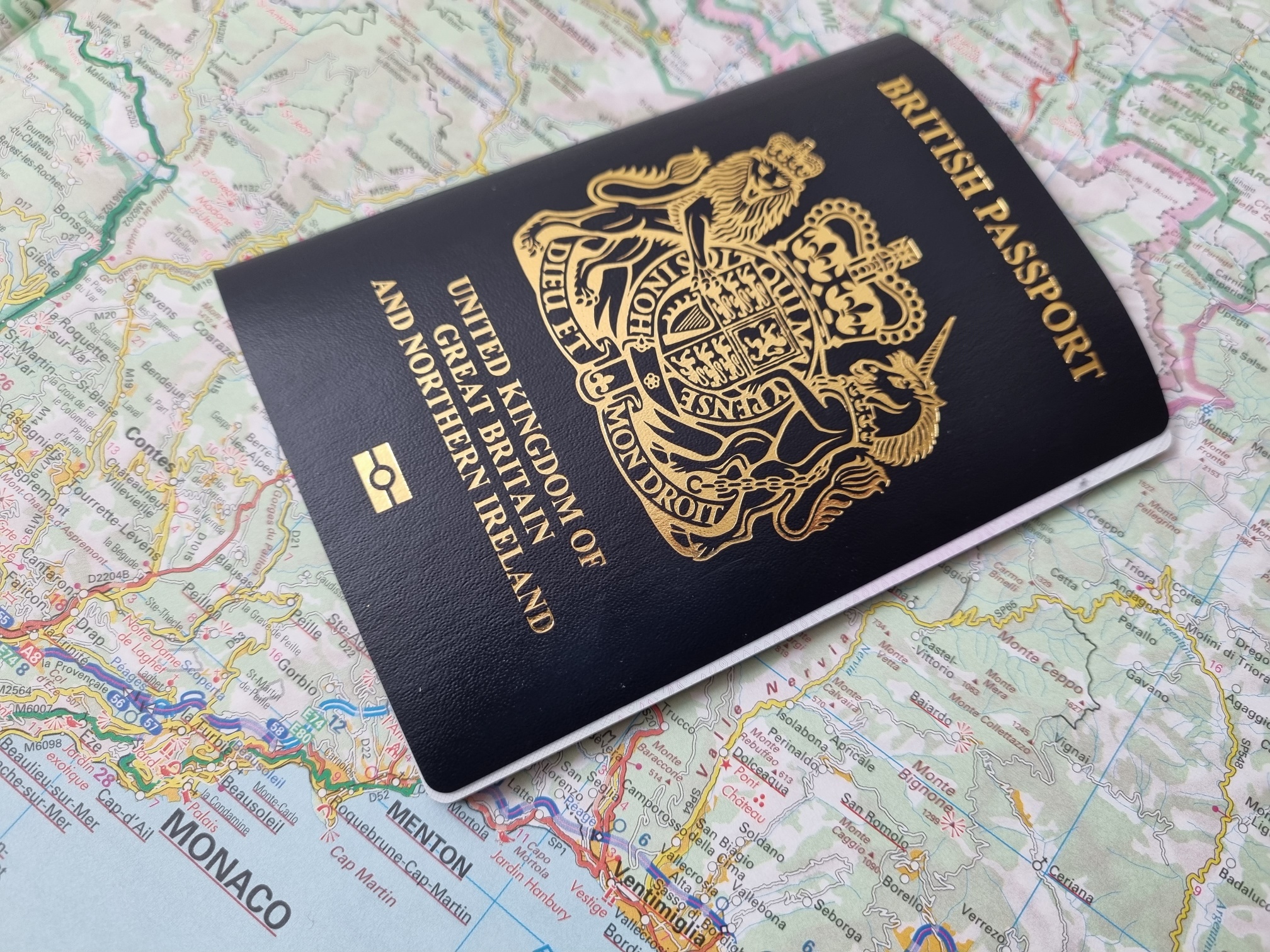Contact us :+91-70 335 335 70
- Monday - Saturday 10:00 am - 07:00 pm
- Third Floor, Plot No. 55, Sector 12-B, Dwarka, New Delhi, 110075



Scotland, England, Northern Ireland and Wales together make the UK. Head of state Queen Elizabeth II and prime minister as government leader make the UK a constitutional monarchy. The most well-known royal palace is Buckingham Palace, the formal residence since 1837. The UK is varied and boasts both modern technologies and historic sites.
The UK is very diverse, offering a mix of ancient landmarks like 900-year-old cathedrals and modern technology. It features vibrant cities, peaceful green hills, and everything in between, providing something for everyone.
The United Kingdom boasts a varied population with a sizable foreign resident count. Globally-minded travellers discover the UK to be a friendly place.
The UK welcomes around 600,000 overseas students from more than 200 nations at present. An extra half a million pupils registered in English language classes in 2019 and 2020, as well as over 50,000 in private UK schools.
With a mixed distribution between undergraduate and graduate levels, international students make about 22% of the overall student population in the higher education institutions in the United Kingdom. Furthermore, forty per cent of postgraduate research students and around thirty per cent of university professors are foreign-born.
Being a progressive country that celebrates variety in all its manifestations makes the United Kingdom proud. We embrace and welcome everyone.
Though this is not the case, students often worry about living expenditures and financial situation. Students should learn how to predict expenses, choose how they will pay for them, open a bank account, and regularly budget their money before leaving for the UK.
When comparing living expenses in the UK and other nations, keep in mind that UK undergraduate and Master’s courses are usually shorter than in other countries, hence resulting in substantially cheaper lodging and living expenditures (often by 50% at the Masters level). Many colleges are accessible on their internet and provide pre-departure handbooks with details on living expenditures, lodging, and transportation for their students.
Undergraduate tuition abroad falls between £11,400 to £38,000.It is expected that the yearly cost will be rather £22,200.
While in Scotland they last four, undergraduate degrees in England, Wales, and Northern Ireland usually run three years
Postgraduate tuition abroad falls between £9,000 and £30,000. It is expected that the annual average cost will be rather £17,109.
Many postgraduate degree programmes offered in the United Kingdom can be finished in one full-year of intensive study. This pays both professional and financial benefits. Usually, a one-year master’s programme consists of fewer related expenses. It enables quicker employment re-entry or entrance than a standard two-year master’s degree.
Course and institution determine tuition; so, we advise you to visit the university or college you are applying to for further information.
With its mix of dynamic cities, rich history, and gorgeous countryside—which provides a wide range of lifestyles and cultural attractions—the United Kingdom attracts people from all across the world.
Spanning England, Scotland, Wales, and Northern Ireland, the UK has a unique character in each area with vibrant modern cities among amazing scenery and beaches
The unpredictability of the UK’s weather is among the few constants about it. Though it is changing, the UK has four separate seasons: winter, spring, summer, and fall. From the brilliant autumn leaves to the new blossoms of spring and the long, pleasant summer evenings, every season has a unique appeal. The temperature is often somewhat mild; almost ever will it drop below -5°C or rise over 32°C. The difference in daylight hours between seasons—December becomes dark by 4:00 PM, while July keeps light until 10:00 PM—is a clear climatic characteristic of the United Kingdom.
Stages in UK education
Types of school
In the United Kingdom, there are generally two categories of schools: Public institutions and State schools, alternatively referred to as comprehensive schools, provide free education to students of all abilities and are financed by the government. Non-public institutions Private schools and public schools are alternative designations for independent schools, which administer their admission criteria and charge tuition fees for enrollment.
Varieties of education
Multiple tiers of education exist in the United Kingdom. Typically, the first stage begins between the ages of three and four and lasts until the age of eighteen or older.
Preparatory and primary education
Preschool education is accessible through both state and independent systems. Numerous children begin their formal education in a nursery school or the nursery class of a primary school between the ages of three and four. The majority of children in the United Kingdom commence formal education at primary school at the age of five, progressing to secondary school around the age of eleven or twelve.
Primary education in Scotland spans a duration of seven years, commencing with Primary 1 (P1) and culminating in P7, which corresponds to Year 7 in England. Within the independent system, students between the ages of 5 and 11, and in certain cases, 13 as well, have access to preparatory education. Students begin preparing for entrance exams to their next preferred independent school between the ages of 11 and 13, or they may remain at their current school if it advances to sixth form. schools.
Certain international pupils commence their education at the institution as live-in boarders (residents) at the age of seven. Subsequently, between the ages of eleven and thirteen, they transition to an independent secondary school. In Scotland, secondary education begins at age 12; secondary 1 through S6 follows years 8 to 13 in England. Most international students register in the United Kingdom between the ages of 11 and 13, attending private boarding schools. Secondary schools in Scotland are sometimes referred to as academies or high schools. Some independent schools let students enrol as late as 13.
Colleges in the UK are educational institutions that offer further education courses leading to specific degrees or qualifications. These qualifications include:
• Diploma
• Foundation Degrees
• General Certificate of Secondary Education GCSE
• Higher National Certificate HNC
• Higher National Diploma HND
• International Baccalaureate
Advantages of studying at a UK college:
College is a more popular option for higher education in the United Kingdom than university, yet there are several advantages to attending college rather than university:
• Lower-tuition fees
• Smaller class sizes
• The option to study from home, reducing additional expenses
• Flexible study programs, including part-time courses
• Pathways to university degrees
• More individual support
University
Universities in the UK are recognized educational institutions with the legal authority to award higher education degrees. Study programs at UK universities typically lead to the following degrees:
• Undergraduate degrees
• Postgraduate Degrees
Additionally, some universities in the UK operate colleges that offer further education courses, such as foundation degrees, to prepare students for university-level study. These colleges may function as branch campuses of larger university bodies.
The universities of Oxford and Cambridge (collectively known as Oxbridge) are prime examples of this structure.
Both have extensive networks of branch colleges located in various regions.
This structure allows students to access a broad range of educational opportunities, combining the advantages of both college and university education.
Enrollment in full-time degree-level studies is a prerequisite for eligibility for a student visa that permits a maximum weekly employment schedule of twenty hours throughout the academic year. A longer-term average cannot be calculated because this restriction applies to any combination of paid and unpaid work conducted across multiple organisations. Beginning in the summer of 2021, individuals who successfully earn in two ways, the undergraduate or master’s degree will qualify for a post-study employment visa in the United Kingdom for two years. The aforementioned visa shall be issued via the recently established Graduate Route. Permission to stay in the UK for a duration of three years will be granted to PhD graduates subsequent to the attainment of their degree.
The Universities and Colleges Admissions Service (UCAS) is a UK-based organization whose main role is to operate the application process for British universities.
UCAS also provides information, advice, and admissions services for
The student can make up to 5 choices on the UCAS Undergraduate Application.
Also, the student can apply to more than one course at the same university.
For most current applications, the cost per student is £20 to apply for a single course, or £26 for two or more courses (as of 2021 entry)
Scotland and Wales – both taught and research courses leading to a variety of qualifications – including MA, MSc, MBA and LLM.
of the course
number and documents used to obtain CAS
certificate (if required)
Additional documents may also be needed if the student is
• The average GMAT accepted score across universities is 540.
• Average GRE score is 155 for Verbal, 167 for Quantitative and 5.0 for Writing.
